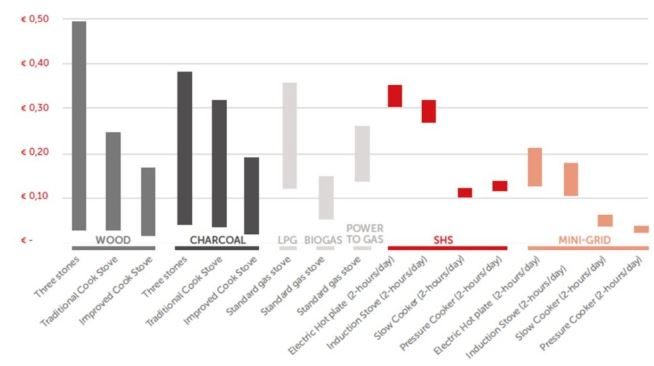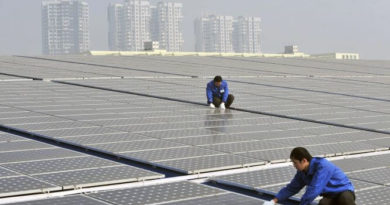Report-Electric Cooking Could Succeed Where Ujjwala Scheme is Struggling

Beyond Fire: How to achieve electric cooking is a report by Hivos and World Future Council claims that electric cooking costs can finally compete with options like firewood etc.
The report claims that cooking with charcoal and firewood sources still accounts for 4 million premature deaths due to indoor air pollution, puts significant strain on already stressed forest resources, and it is the single largest source of greenhouse gas emissions (GHGs). But thanks to the drop in solar energy components in the past three years, a sustainable electric cooking option is now within reach in large pats of the world where the ajority of these deaths occur.
“For almost two decades we have inadvertently narrowed the debate of clean cooking to just cook stoves. We need to look at the sources of energy and clean fuels”, says Kandeh Yumkella, Parliamentary Leader Sierra Leone, first CEO of Sustainable Energy for All and former UN Special Representative and Director General of UNIDO.
Hivos and World Future Council (WFC) did just that, Eco Matser, Program Manager Green & Inclusive Energy Program Hivos responds. “We looked into alternatives that provide long term sustainable solutions rather than quick intermediate fixes such as improved cook stoves”, he adds.
The Cooking appliances examined were solid fuel based stoves (wood and charcoal) gas based stoves (LPG, biogas and power to gas) and electric cooking (electric hot plate, induction stove, slow cooker and pressure cooker) in both mini-grid contexts and via solar home systems.
The report shows that the costs of cooking with electricity – both in mini-grid contexts and via solar home systems – is now well within the range of cost-competitiveness of other cooking alternatives. Households spend on average between EUR 1 – EUR 31/month on cooking fuels. With electric cooking with Solar Home Systems (SHS), this is between EUR 5 – EUR 15/month. The costs per household of cooking with a mini-grid range from EUR 4 – EUR 36/month. One EUR = Rs 78
The system-level savings of adopting high-efficiency end-use appliances have the potential to mirror the transformative effects that low-cost LED lighting has had in the off-grid solar sector, according to the report.
The study calculates the costs range for cooking with various different appliances in which both the upfront costs, as well as the ongoing usage-related costs are taken into account.
The report ends with 6 follow up steps to put electric cooking firmly on the map. From setting clear goals to incentivizing reducing upfront costs and mobilizing climate finance to play a far greater and more direct role in supporting the transition to sustainable cooking.
A download of the report is available here.




